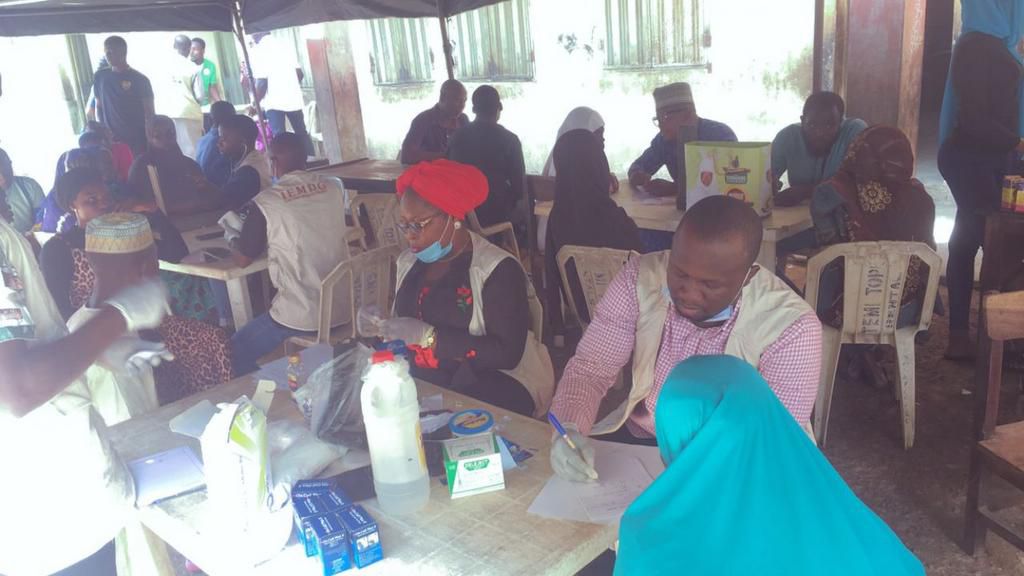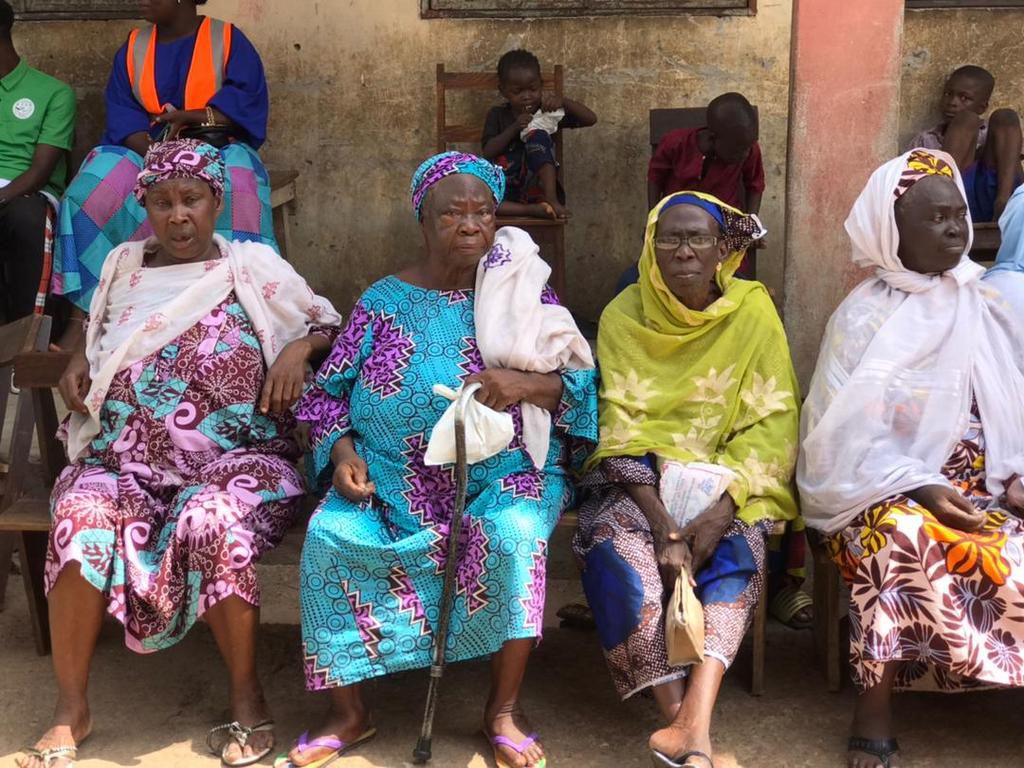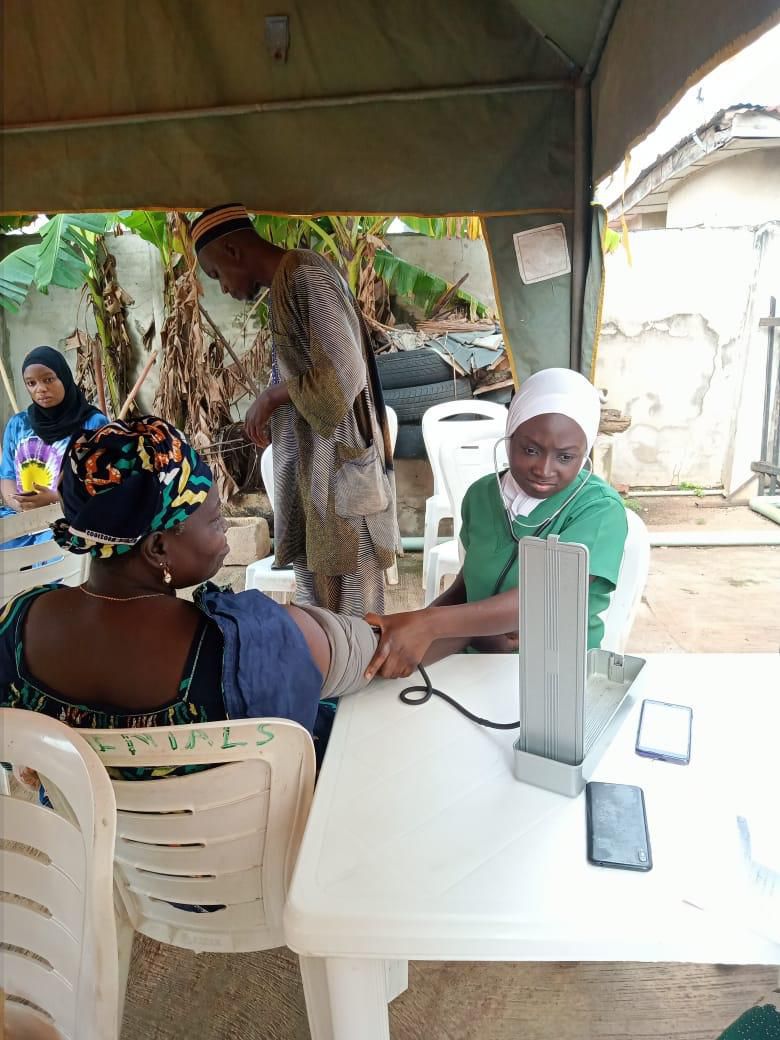Alleviating the plights of diabetes patients with free drugs and medical checks
)
When the world marked diabetes day on Sunday, November 14, 2021, many Nigerians living with the disease took advantage of campaigns about the disease in their communities to seek medical help.
Diabetes is a serious health concern in Nigeria, a country, where a lot of people living with the disease have no access to proper medical attention.
Due to the pervasive poor health facilities in the country, thousands of diabetic patients in such communities carry on with the disease untreated.
Nigeria is currently the most affected country in Africa. It is estimated that over four million Nigerians are living with either type 1 or type 2 diabetes.
According to the World Health Organisation (WHO), Nigeria has the highest cases of diabetes in sub-Saharan Africa.

The estimates of the health agency for Nigeria show that four million Nigerians are diabetic, and nearly 4–11 per cent of the population lives with the disease.
In 2015, it was estimated that diabetes killed more than 40,000 Nigerians, and the huge loss is attributed to the lack of efficient and effective healthcare delivery in the country.
In fact, it’s been predicted that the disease would become the seventh leading cause of death in the world by the year 2030.
Addressing the challenge
It is common knowledge that if diabetes is not properly managed, it could lead to chronic complications such as stroke, heart attack, kidney failure and blindness.
Sadly, many persons living with diabetes, especially those in remote settlements in Nigeria can only wish away the consequences of not treating the diseases.
However, the Feed The Vulnerable Families Foundation, a non-governmental organisation, is making an effort to support people living with diabetes in Nigeria with free drugs, free medical checks and settling their medical bills.
Speaking on the mission of the foundation, Oladipupo Abd. Mahjeed said, “Our goal is simply to inspire hope, come to the aid, and contribute to the health and well-being of the vulnerable families in Nigeria by providing the best care to individuals battling with diseases they can’t even afford medical bills for”.

Mahjeed said the foundation is always out to provide aids to individuals struggling to take care of their type 1 or 2 diabetes.
In its bid to mark the recent World Diabetes Day, he said the foundation “tested, sensitized and handed medications to beneficiaries living with diabetes”, while some beneficiaries were referred to hospitals by the foundation’s health professionals.
“As you may be aware, November 13 and 14 are World Diabetes Day, hence we prepared to test, sensitize, hand medications to beneficiaries living with diabetes, and check for high blood pressure. Our health professionals during this outreach sometimes recommend some beneficiaries for urgent visits to their doctor depending on their condition, Mahjeed said.
Speaking to Pulse about the foundation’s outreach at Ode-Alfa Nda community in Kwara state, one of the beneficiaries, AbdulGaniy Wopa commended the organisation for coming to the aid of the community, especially people living with diabetes in the area.
“Honestly speaking they did well for the program. I am one of the beneficiaries of their outreach. I got to know about them when I got a call that some students would come to our community to carry out free medical tests and drugs. And I am also one of the people that mobilised members of the community for them.” he said.
Apart from its focus on diabetes, Mahjeed said the foundation has carried out medical outreaches in 32 states.
Strategy
The FTVF foundation, according to its founder, has been supporting diabetes patients since 2016, and has helped over a thousand Nigerians living with the disease.
“When we started this in 2016, we would visit hospitals to get names of beneficiaries. As at this period, our goal was not to sensitize these individuals but to see how we could come to their aid. We created a book which we distributed to them as our focus was on those things they could do to cope with diabetes and manage stress.”
Reaching out to Nigerians in 32 states is partly down to the organisation’s collaboration with health practitioners in some of the states.

The FTVF also uses its social media platforms to call on volunteers to support its mission to reach out to people in need of medical help across the country.
This explains why some of its volunteers are undergraduates who selflessly subscribed to the foundation's mission to alleviate the plights of ailing and needy Nigerians.
Still, efforts to get medical professionals to volunteer for the cause remains an issue, as the founder of the foundation identified human capital as one of the challenges confronting the organisation.
Mahjeed said, “sometimes, we might prepare to give free hypertension or diabetes check and free medications to 200 people during an outreach, and then we have a lot of people coming out saying I just want to check if they are hypertensive. Sometimes, we might have only four to five medical professionals assigned to us by some of our partners, but then, the crowd often gets too overwhelming for them to handle. For instance, the last one we had in Ilorin, we prepared for 300 and we had over 400 people. At the end of the day, we weren’t able to give everybody medications”.
The foundation also considers funding as a factor limiting its intervention programs for people that need help with their diabetic care and management.
And to keep its medical outreaches alive for more Nigerians to benefit from, the foundation seeks more collaboration and partnerships with big hospitals and NGOs that are focused on health.
*This story was with the support of the Nigeria Health Watch and the Solutions Journalism Network as part of the Solutions Journalism Africa Initiative.
)
![Aisha blows hot on Security forces; Y7ou won't believe what she said [VIDEO]](https://image.api.sportal365.com/process/smp-images-production/pulse.ng/17082024/1f976edf-1ee2-4644-8ba1-7b52359e1a8f?operations=autocrop(640:427))
)
)
)
![Lagos state Governor, Babajide Sanwo-Olu visited the Infectious Disease Hospital in Yaba where the Coronavirus index patient is being managed. [Twitter/@jidesanwoolu]](https://image.api.sportal365.com/process/smp-images-production/pulse.ng/16082024/377b73a6-190e-4c77-b687-ca4cb1ee7489?operations=autocrop(236:157))
)
)
)
)
)
)
)
)
)
)
)